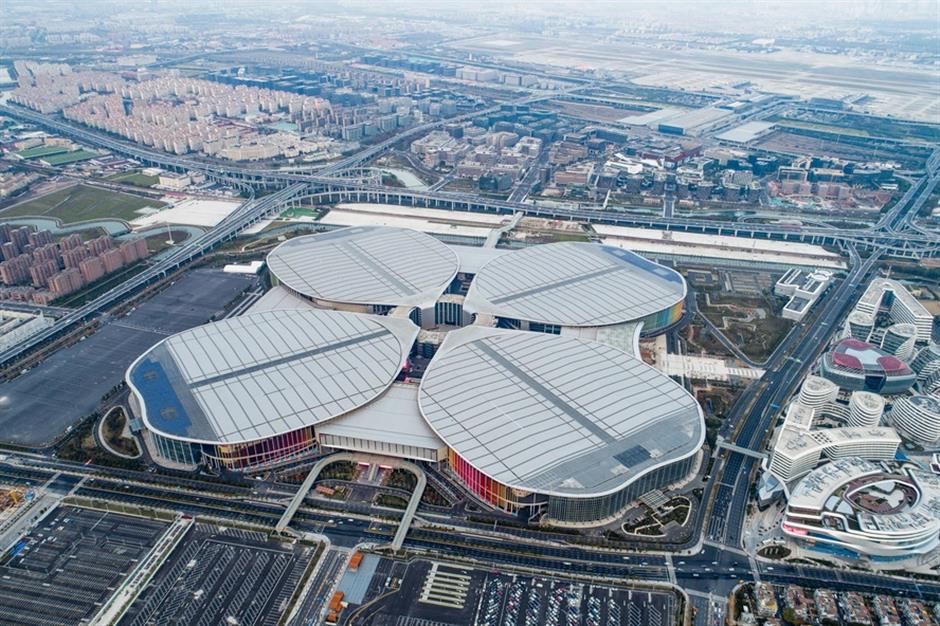
政府新闻
青浦在创新发展、宜居和生态可持续之间取得平衡 2025-11-26
Qingpu District is emerging as a hub in the Yangtze River Delta region while also contributing to strategic development at the national level, district officials said on Wednesday.
Notably, the district's GDP for 2024 reached 182.5 billion yuan (US$25 billion), which is 1.5 times higher than the figure recorded at the end of the 13th Five-Year Plan (2016-2020).
This achievement marks a new milestone in the district's socio-economic development, especially considering its role in serving the China International Import Expo, building the region into a demonstration zone for Yangtze River Delta integration, establishing Hongqiao as an international hub for opening up, and constructing a new city in the region, according to Wang Ping, Party secretary of the district.
As a water-rich district lying to the west of the city bordering on Jiangsu and Zhejiang provinces, the district's growth has been made in tandem with the drive to burnish the district's image as a livable city with heightened ecological awareness.
These efforts are paying off in attracting top talent from around the world, which is critical in sustaining the district's economic ambition.
In addition to becoming the permanent venue for hosting the China International Import Expo, the National Exhibition and Convention Center (Shanghai), the district is also becoming a favored destination as headquarters for private enterprises and is playing a pioneering role in e-commerce.
 The National Exhibition and Convention Center (Shanghai), the permanent venue for the annual China International Import Expo
The National Exhibition and Convention Center (Shanghai), the permanent venue for the annual China International Import ExpoWang revealed that a total of 109 enterprises are headquartered here, and from January to October this year, cross-border e-commerce totaled 8.3 billion yuan in import and export volumes, the highest in the city.
Infrastructure improvements will strengthen the district's benefits in this area, as shown by the extension of the No. 17 Metro line and the building of the Shanghai-Suzhou-Huzhou high-speed railway, which connects Shanghai with Suzhou in Jiangsu Province and Huzhou in Zhejiang Province, serving as a key transport link in the delta integration effort.
The integration effort has also honed the district's muscle in system innovation. Specifically, while facilitating cross-region coordination so that different regions might be governed by one blueprint and one set of standards, Qingpu had come up with 154 innovative results; 61 of them were later promoted on the national scale.
As the first point of contact for enterprises coming from the other Delta regions to the city, Qingpu has also been making substantial progress in old town renovation and the construction of Qingpu New City.
Improved living conditions would be a huge draw for young talent, which is critical in driving such pivotal industries as sophisticated equipment manufacturing and biopharmaceutical enterprises.
Children's education, medicine, and old-age care facilities could all benefit from similar efforts.
 The central business district of the Qingpu New City is taking shape.
The central business district of the Qingpu New City is taking shape.As a history-rich district, Qingpu continues to project the charm of its unique culture typical of a watertown south of the Yangtze, in light of integrated development across six sectors: agriculture, culture, tourism, business, sports, and exhibition.
The Songze archaeological site has been listed as one of the top 100 archaeological discoveries of the century.
Zhujiajiao, a water town, has seen nearly 1.6 million foreign tourists from January to October this year.
The district is sparing no effort in safeguarding its rich ecological heritage.
The "river chief" regime has effectively protected water and rivers in Qingpu, where all 23 of Shanghai's natural lakes are located.
Its pristine ecology has given rise to celebrity villages, where homestay and tourist revenues help lift local farmers' income, which stands at 47,800 yuan per capita in terms of disposable income.
 Qingpu hosts all 23 of Shanghai's natural lakes.
Qingpu hosts all 23 of Shanghai's natural lakes.Source: Shanghai Daily

